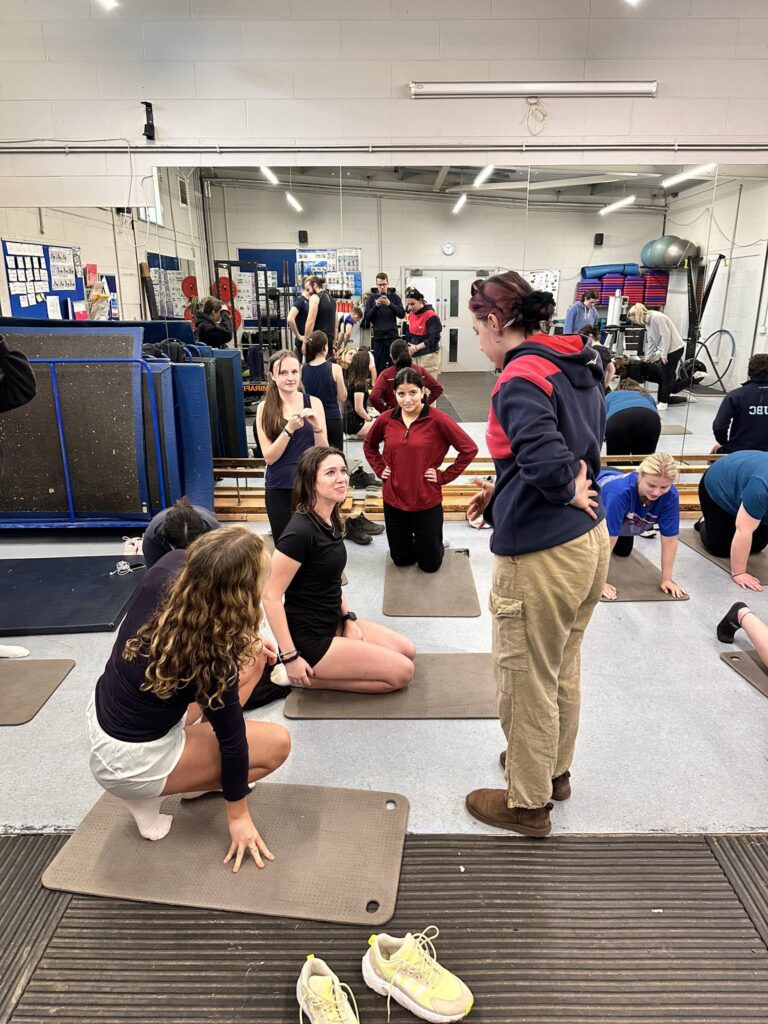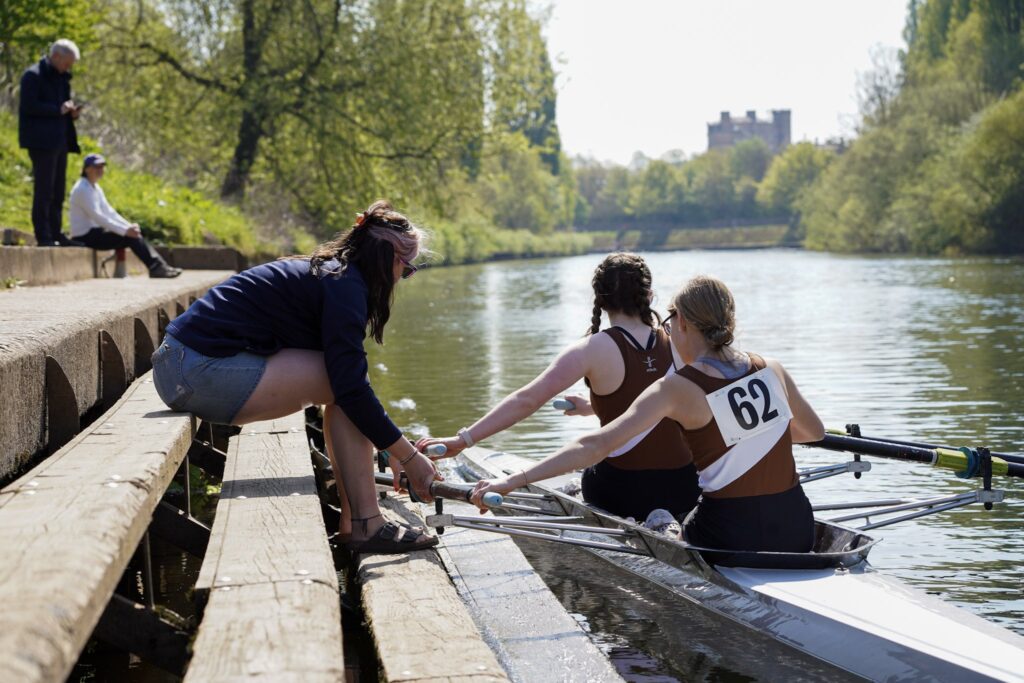Jessica Edgar-Harris is proud of her northern roots and considers herself to be something of an ambassador of rowing in the north.
Attending a state school in Durham, rowing would not have been many kids’ activity of choice. It likely would not have been for Jessica, only for her friends joining the school’s rowing club.
“I’m one of the few that’s still involved [in rowing] out of that group,” she told Fen Regis Trophies. “Very quickly, it became my whole life.”
Now, Jessica is a rowing coach and PE teacher at St Peter’s School in York, as well as the head coach for York St John University Boat Club (YSJBC) and the women’s development lead coach for Yorkshire.

Rowing With Her Friends
For children, first and foremost sport should provide a safe space to have fun and socialise. Jessica was no different and, aged 13, joined Durham Amateur Rowing Club along with her friends.
“I didn’t want to play football,” said Jessica about signing up for her first rowing club. “Growing up in the northeast, football is the big thing, so just doing something different was quite interesting.
“At the local club, some of my friends and their parents rowed there. A group of maybe 10 or so of us went, and that was it.”
She stayed with the club through to 18 when she left to go to university in Newcastle. With aspirations of continuing to develop and compete on the water, injuries such as tendonitis and tennis elbow, as well as being assessed for scoliosis, meant that things didn’t quite go to plan.
“I ended up stopping in the first year [at university],” Jessica explained. I was struggling with losing my identity, going from training 14 times a week to being told I would never row again.”
Transition to Coaching
Jessica has since managed to get back onto the water, though her injuries mean this must be carefully managed. With rowing such a huge part of her life, leaving the sport behind was never an option.
“That’s how I got into coaching,” she said. “I stopped for six months and then just managed it a bit better – I was not doing as much mileage, rowing only when I really had to.
“All of my training consisted of a lot of cross training, on the bike and running, but not a lot of erging (using a rowing machine).”
In 2016, Jessica began coaching for Tyne Amateur Rowing Club, where her coach at Newcastle University, Alex Leigh, also coached. Having coached for Reading Rowing Club, Eton College and British Rowing in the proceeding years, Jessica took up her current role of head coach at YSJBC alongside working as a PE teacher at St Peter’s School in York.
“I moved to be closer to my younger sisters,” Jessica said of her move to York. “I was exploring doing some teaching and coaching…I wasn’t sure what I wanted to do.
“Initially, I was going to go for a year and decide what I wanted to do and move back down south, as rowing is predominantly a southern sport.
“Very quickly, I just really liked it [at St Peter’s School]. It was a small program at the school, but we have managed to build up the numbers over the last few years and develop the program.
“It has been nice to have a lot of input in what we’re doing and the changes that we’re making, as well as having the support of the headmaster to do that.”

“Northern Ambassador” of Rowing
By Jessica’s own admission, rowing has the reputation of a southern-centric sport. With Cambridge and Oxford featuring in the sport’s most notable annual event, it is easy to understand why, but that is something Jessica is keen to change.
“I like to think of myself as a bit of a northern ambassador,” she said. “Sometimes it was difficult when kids would come down and they would feel like they shouldn’t be here.
“It sounds cliché, but it’s just about breaking down barriers and trying to give examples.
“I never went to a private school, growing up in the northeast – I’m just trying to break it down so that it is just a normal activity.”
Jessica added: “There are a lot of projects across the country that are trying to break down the stereotype.
“I give kids a bit of my experience and try not to make it too complicated – at the end of the day, it’s just trying to make a boat move backwards.”
By Aaron Gratton
